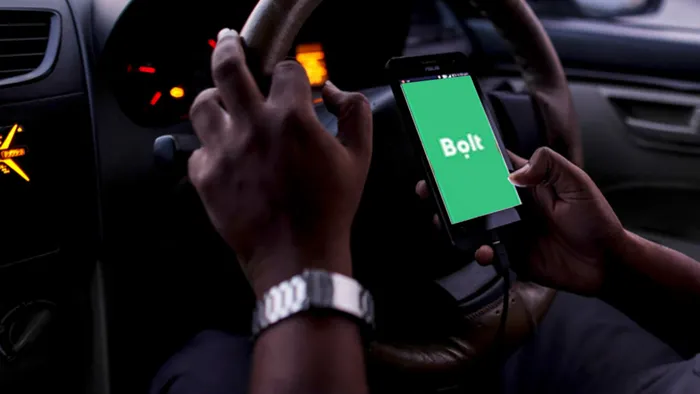
Safety measures for e-hailing drivers: Bolt South Africa's response to recent attacks.
Image: File
Bolt South Africa is sounding the alarm for riders to steer clear of "offline" or cash-based trips that are arranged outside the Bolt app.
This warning comes as reports of riders being targeted by criminals have surged after they agreed to trips directly with drivers, bypassing the app’s critical safety features.
"When a rider accepts a trip outside the Bolt app, we lose visibility of that journey, and so do they," explained Simo Kalajdzic, senior operations manager at Bolt South Africa, through a statement.
Kalajdzic adds that these trips cannot be monitored or traced, which means they cannot offer any assistance if something goes wrong.
"The safest choice is always to stay in the app," said Kalajdzic.
Data from the South African Police Service (SAPS) reveals a worrying rise in incidents where passengers arranged informal rides with e-hailing drivers. Many of these incidents involved theft, assault, or even abduction, particularly in busy cities like Johannesburg, Durban, and Cape Town.
Bolt warned that anyone can approach passengers in crowded places, such as shopping malls, airports, or nightlife areas, pretending to be a licensed e-hailing driver. These individuals often offer cheaper or quicker "offline" trips, but accepting such offers can place passengers in danger.
"For your safety, always ensure that your trip is booked and confirmed through the Bolt app, where driver and vehicle details are verified, tracked, and recorded," read the statement.
It also said that choosing an offline trip means giving up valuable safety guarantees that come with using the app. Without in-app GPS tracking, it becomes impossible for Bolt or the authorities to quickly locate a passenger in real time.
In an emergency, no alerts can be triggered, leaving riders vulnerable. More so, without a digital trip record, the e-hailing company cannot assist the SAPS in investigations, and without verified driver identification, the risk of impersonation or fraud greatly increases.
"These trips might seem convenient or cheaper at the time, but they can have life-threatening consequences. If it’s not on the app, it’s not a Bolt trip," said Kalajdzic.
It stated that the company has invested heavily in local safety infrastructure to protect riders and drivers across South Africa.
The app includes real-time GPS tracking, a Share My Ride feature that allows passengers to share their live location with trusted contacts, and an in-app Emergency Response Button available 24/7 that connects riders and drivers directly to private emergency services through Obsidian Systems (powered by Namola).
"All drivers undergo background checks, and only approved vehicles may operate on the platform. Riders and drivers can also record audio during trips for use in safety investigations, and a Rate and Report function enables users to share feedback or report safety issues directly in the app."
It continued to share that Bolt is continuing to strengthen its partnerships with SAPS and the Road Traffic Management Corporation (RTMC) to improve safety for everyone.
"These partnerships include real-time data sharing during active investigations and joint awareness campaigns focused on passenger protection. A representative from SAPS noted that incidents linked to offline trips are significantly harder to investigate, as there is no trip record or driver identity verification.
"Using recognised e-hailing platforms within the app ecosystem is critical for accountability and public safety."
“We take the safety of our riders and drivers extremely seriously. We will continue working hand-in-hand with law enforcement and our safety partners to ensure that every Bolt trip in South Africa is as safe as possible, but that safety starts with riders staying in the app," ended Kalajdzic.